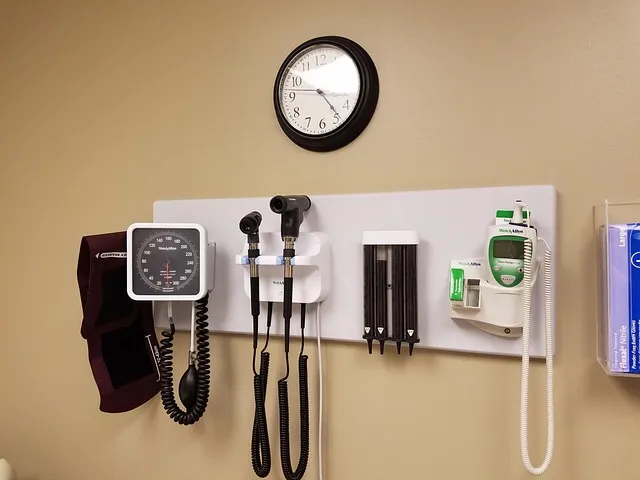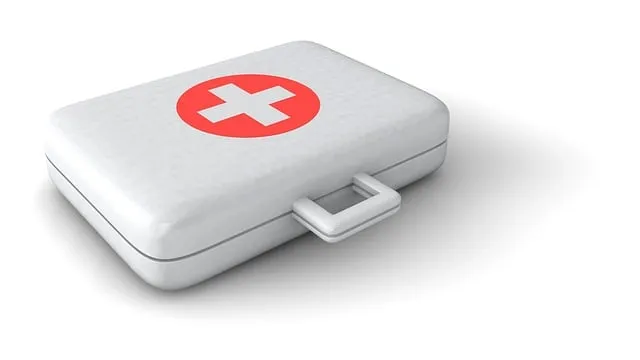In the healthcare sector, efficient doctor appointment scheduling is key to patient satisfaction and practice success. Traditional methods struggle with busy calendars, urgent needs, and high no-show rates causing revenue loss. Professional booking services using advanced technology and dedicated call centers streamline scheduling, reduce errors, implement no-show reduction strategies, and enhance patient engagement, optimizing operations. Integrating booking tech with existing software further improves accessibility, resource utilization, and patient satisfaction by offering diverse booking options, personalized communication, automated rescheduling, flexible slots, and targeted no-show reduction strategies.
In today’s competitive healthcare landscape, efficient doctor appointment scheduling is paramount for medical practices to thrive. Navigating the challenges of lead engagement, visit confirmation, and managing no-shows can be a daunting task. This article explores these critical issues and presents strategies to optimize your practice’s operational efficiency through an advanced professional appointment booking service. From understanding the root causes of no-shows to implementing technology that enhances patient experiences, discover how streamlined scheduling can positively impact your medical practice.
- Understanding the Challenges of Doctor Appointment Scheduling
- The Impact of No-Shows on Medical Practices and Patients
- How an Efficient Booking System Can Improve Patient Experience
- Key Features of a Successful Professional Appointment Booking Service
- Integrating Booking Technology with Existing Medical Software
- Strategies to Enhance Lead Engagement and Reduce No-Shows
Understanding the Challenges of Doctor Appointment Scheduling

In the dynamic landscape of healthcare, efficient doctor appointment scheduling is more than just a logistical task; it’s a cornerstone of patient satisfaction and practice success. Medical practices face unique challenges in managing appointments, from juggling increasingly busy doctors’ calendars to accommodating patients with urgent needs. Furthermore, the issue of no-shows remains a significant hurdle, impacting revenue and resources. Traditional methods often fall short in addressing these complexities, leading many practices to seek innovative solutions.
A professional appointment booking service emerges as a game-changer in this context. By leveraging advanced technologies and dedicated call center teams, these services streamline the scheduling process, minimizing errors and maximizing efficiency. They not only facilitate seamless communication between patients and doctors but also implement strategies for no-show reduction through timely reminders and follow-up calls (call center appointment booking). This dual approach ensures a robust system that enhances patient engagement and optimizes practice operations.
The Impact of No-Shows on Medical Practices and Patients

Medical practices often face significant challenges due to no-shows, which can have a profound impact on both the practice and its patients. No-shows disrupt the carefully planned schedules of healthcare providers and staff, leading to underutilized resources and potential revenue loss. Moreover, they cause inconvenience and frustration for other patients who may have been able to utilize those appointments.
In addition, no-shows can hinder effective patient care. When a patient misses an appointment, it creates a gap in their treatment plan, potentially leading to delayed diagnoses or exacerbation of conditions. To combat this issue, practices often employ various strategies such as sending reminder appointment follow-up calls, utilizing automated scheduling systems, and offering flexible booking options. Implementing robust practice scheduling support solutions can significantly reduce no-shows, ensuring optimal resource utilization and continuity of patient care.
How an Efficient Booking System Can Improve Patient Experience

An efficient doctor appointment scheduling system is a game-changer for medical practices, significantly enhancing patient experiences from the moment they consider making an appointment to post-visit care. By streamlining the booking process, patients can easily navigate available time slots and select what suits them best, eliminating the hassle of lengthy phone calls or waiting times. This accessibility improves convenience, especially for those with busy schedules, leading to higher patient satisfaction.
Furthermore, a robust system offers automated reminders through text or email, reducing no-shows. These reminders act as polite nudges, encouraging patients to confirm their attendance and minimizing last-minute cancellations that disrupt other appointments. Additionally, appointment follow-up calls can be utilized to gather feedback, address concerns, and foster better patient-doctor communication, ensuring a more personalized healthcare experience.
Key Features of a Successful Professional Appointment Booking Service

A successful professional appointment booking service for medical practices offers a range of key features designed to streamline operations and boost efficiency. Firstly, an intuitive and user-friendly interface is essential, allowing both patients and staff to easily navigate scheduling, view availability, and manage appointments with minimal effort. Advanced search functions that filter by specialist, location, and even insurance coverage can significantly enhance patient experience, encouraging more bookings.
Additionally, robust no-show reduction strategies are vital for minimizing empty slots. Automated reminders, confirmations, and rescheduling options can help patients keep their commitments while providing practice scheduling support. Integrating a call center appointment booking system further streamlines the process, offering a centralized point of contact for both patients seeking appointments and administrators managing resources.
Integrating Booking Technology with Existing Medical Software

Integrating booking technology with existing medical software is a seamless and efficient way to streamline doctor appointment scheduling for practices of all sizes. Modern solutions offer intuitive interfaces, allowing healthcare providers to manage their calendars effortlessly while ensuring patient convenience. By integrating automated reminders healthcare, practices can reduce no-shows, optimize resource utilization, and enhance overall efficiency.
This integration provides practice scheduling support by automating various tasks, such as sending out appointment confirmations, follow-up reminders, and even rescheduling options for patients. With real-time updates and synchronized data, medical staff can quickly identify available slots, accommodate new patients, and manage existing appointments effectively, minimizing disruptions and maximizing patient satisfaction.
Strategies to Enhance Lead Engagement and Reduce No-Shows

To enhance lead engagement and reduce no-shows for medical practices, a strategic approach is essential. Implementing a robust doctor appointment scheduling system that seamlessly integrates with existing practice management software can significantly improve efficiency. By offering multiple booking options—online, via phone, or through a dedicated call center appointment booking service—practices can cater to different patient preferences and ensure better accessibility. Personalized communication, such as sending reminders and confirming appointments, can boost engagement and minimize last-minute cancellations.
Additionally, leveraging practice scheduling support features like automated rescheduling options, flexible time slots, and patient feedback mechanisms can further enhance the experience. Focusing on no-show reduction strategies, such as implementing a reliable notification system, offering incentives for timely arrivals, and conducting follow-ups with patients who frequently miss appointments, can substantially improve resource utilization and optimize appointment availability. These measures collectively contribute to creating a more responsive and patient-centric environment, fostering stronger lead engagement and decreasing no-shows in medical practices.
